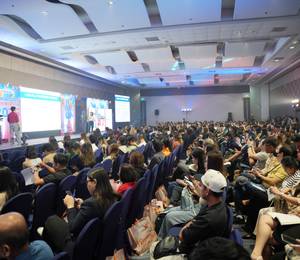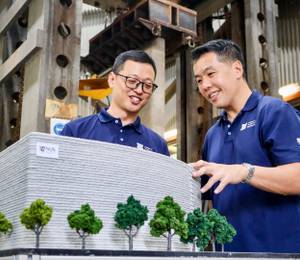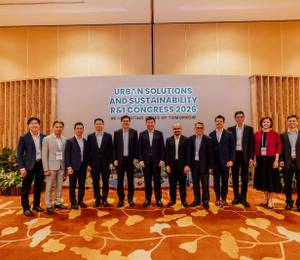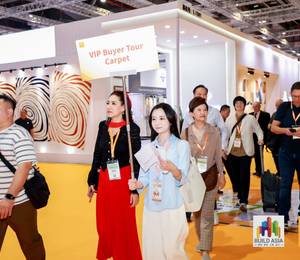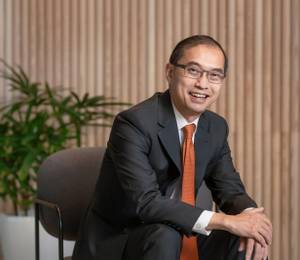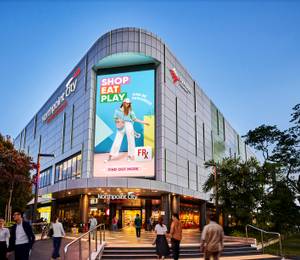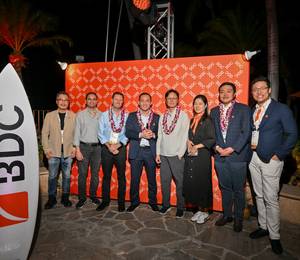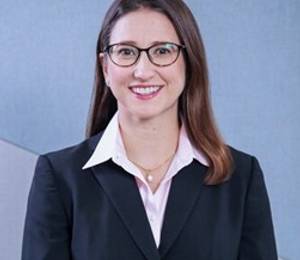Lendlease, a leading international property and infrastructure group with operations in Australia, Asia, Europe and the Americas, has embarked on an ambitious road to Absolute Zero Carbon by 2040. And to achieve that, it has launched a decarbonation roadmap for Asia to reduce carbon emissions and drive long term value for its partners, the community and the planet. Michael Long, Head of Sustainability, Asia, Lendlease, reveals more details of the roadmap with SEAB.
SEAB: Which countries will you focus your Asia Decarbonisation Roadmap on and why?
MICHAEL: Our Mission Zero Roadmap for Asia includes two aggressive targets comprising Net Zero Carbon by 2025 (Scope 1 and 2 emissions), and Absolute Zero (Scope 1, 2 and 3 emissions) by 2040. To begin with, our Mission Zero Roadmap is focused across our four markets in Asia, namely China, Japan, Malaysia and Singapore, however we appreciate that as the business grows and we engage our clients, investors and supply chain partners, we will need to reach beyond these boundaries.
SEAB: The company aims to become a 1.5°C aligned company and achieve Absolute Zero Carbon by 2040. Can you briefly tell us how you are going to do this?
MICHAEL: In Asia, Lendlease will undertake a multi-pronged approach by reviewing the fuels burnt, power consumed, materials and services purchased and tenant emissions at its projects, assets and across operations. These include:
1. Reducing Scope 1 emissions, which are direct emissions from Lendlease-owned and controlled resources, produced directly from fuels burnt
- Initiatives include trialling alternative onsite fuels, increasing use of electric construction plant and equipment, and use of battery storage and charging infrastructure. For example, we will be using biodiesel on generators at one of Lendlease’s redevelopment projects.
2. Reducing Scope 2 emissions, which are indirect emissions from the generation of purchased energy from a utility provider, produced by the power consumed
- Initiatives include increasing renewable electricity incrementally to reach 100 percent by 2030, increasing onsite solar generation on our assets and integrating renewable energy infrastructure on all new developments. We prioritise the health and wellbeing of our employees and will only occupy high performance buildings for our workspaces. 100 percent of Lendlease’s assets in Singapore have achieved Green Mark Platinum rating.
3. Reducing Scope 3 emissions, which are all indirect emissions that occur upstream and downstream of Lendlease’s value chain, through the review of materials and services procured
- Initiatives include investing in R&D and collaborating with suppliers to eliminate embodied carbon in construction materials procured. Lendlease is part of the Singapore Green Building Council’s Embodied Carbon Taskforce and signed the Embodied Carbon Pledge to Act, working with industry peers and partners to reduce upfront emissions from the manufacture of building materials.
4. Reducing Scope 3 emissions from tenants
- Initiatives include partnering with tenants to reduce their emissions and developing next generation green leases. 100 percent of tenants in Lendlease’s malls in Singapore are on Green Leases which promotes energy efficiency.
SEAB: How is Lendlease collaborating with other industry players to drive industry wide reduction of emissions?
MICHAEL: The road to decarbonisation is a global challenge, and we recognise the importance to collaborate with not only our fellow industry players, but also the business community at large. This is why we have joined Race To Zero – a United Nations initiative to rally leadership and support from businesses, cities, regions and investors for a healthy, resilient zero carbon recovery. Lendlease publicly discloses its performance annually under the requirements of the Taskforce for Climate-rated Financial Disclosure (TCFD) and is also the only Property and Construction sector representative on the TCFD Secretariat’s Advisory Group for Scenario Planning.
As part of Mission Zero, we became the first property and infrastructure company to become a full member of Responsible Steel in 2019, an organisation that seeks to bring major steel-using organisations from a range of sectors together to speed up the transition to a net zero carbon steel industry. This year, we also announced a global partnership with Stora Enso to increase the use of sustainable timber products and to further decarbonise our embodied carbon in the construction materials we use.
Here in Singapore, Lendlease is part of the Green Building Council’s Embodied Carbon Taskforce and signed the Embodied Carbon Pledge to Act, working with industry peers and partners to reduce upfront emissions from the manufacture of building materials. We have also signed a Memorandum of Understanding with JTC to jointly research and develop a digital platform for Integrated Digital Delivery to drive efficiencies and reduce waste in the construction sector.
Our Mission Zero target is clear and partnering with industry groups, leading peers and our supply chain is an important part of the solution.
SEAB: What are some of the key milestones for Lendlease in their decarbonisation roadmap that are particularly noteworthy?
MICHAEL: Two key milestone years on the journey to Mission Zero Roadmap are our deadline for attaining net zero carbon by 2025 (which applies to Scope 1 & 2 emissions), and 2040, our deadline for attaining absolute zero carbon emissions (which applies to Scope 1, 2, and 3 emissions).
We have laid out a five-step plan to absolute zero carbon. Ahead of 2030, we aim to phase out all diesel and gas usage in our operations and use 100 percent renewable electricity before 2030.
Recognising that we cannot attain decarbonisation alone, we will collaborate with supply chain partners, tenants and residents to set pathways to achieve absolute zero carbon by 2040.
SEAB: What do you see as your biggest challenges forward?
MICHAEL: Nothing worth doing is easy, but one of the key challenges on the road to decarbonisation will be addressing Scope 3 emissions or indirect activities. They can occur upstream such as emissions from the manufacturing of building materials we procure, or downstream activities such as emissions from business travel, tenant power consumption, or the transportation of materials.
Scope 3 emissions generated upstream will pose a challenge as tackling these require technologies that are not yet available today. Working with our tenants to reduce their emissions is also key to attaining Mission Zero, as our goal will require a multi-stakeholder approach that will ultimately create communities that thrive for future generations to come.
